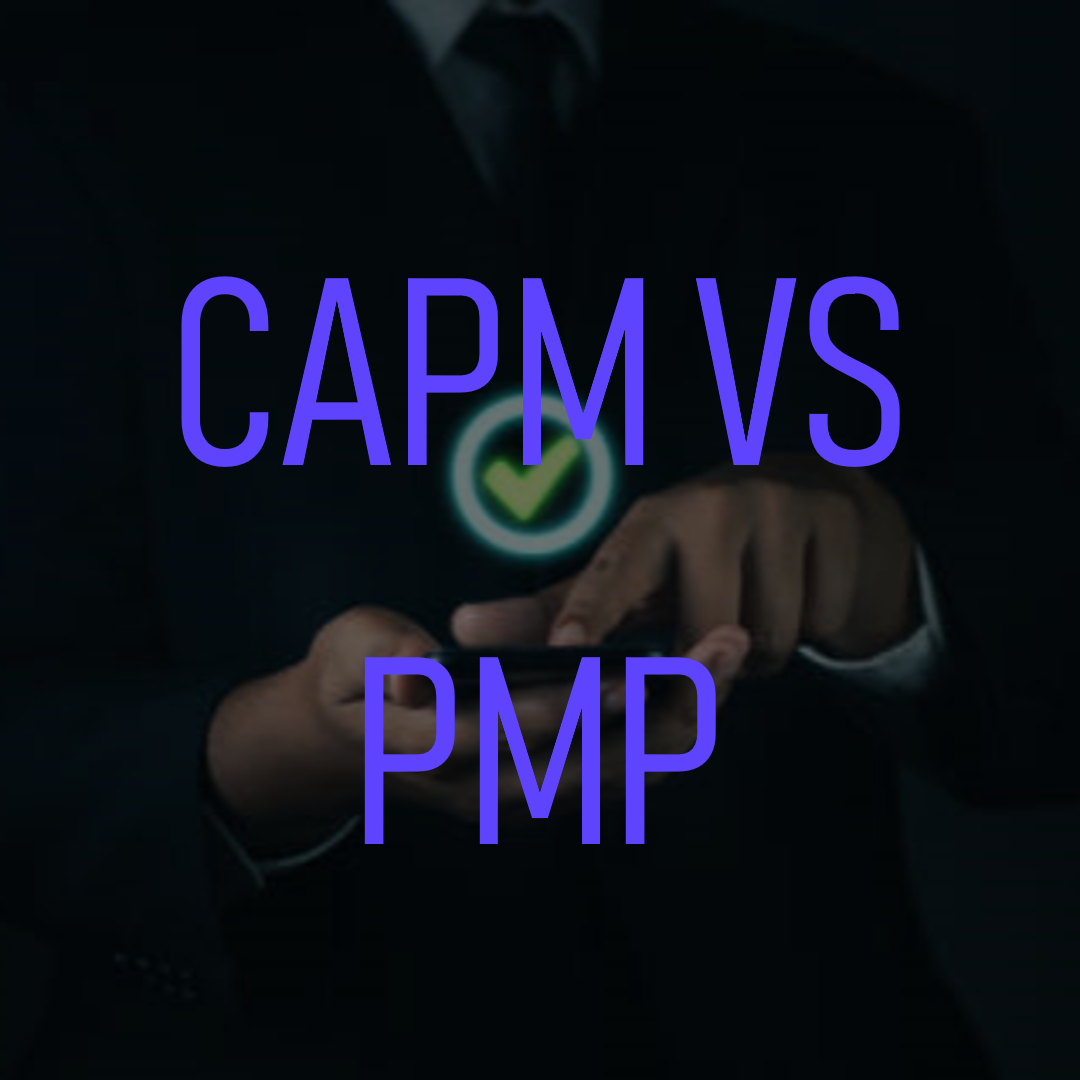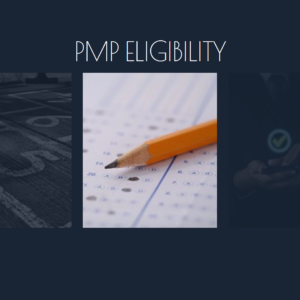If you are a project manager or aspire to become one, you may want to know the difference between CAPM vs PMP certifications. These are two of the most valuable and widely recognized project management certifications in the world. But what are they exactly, and how do they differ from each other? More importantly, how do you decide which one is right for you?
In this article, we will explain what CAPM and PMP are, and why they are valuable for project managers. We will also compare and contrast them on various factors, such as exam difficulty, certification cost, recognition, and career opportunities. Finally, we will provide some tips and questions to help you choose the best certification for your goals, experience, and budget.
By the end of this article, you will have a clear understanding of CAPM vs PMP, and how to decide between the two of them.
Table of Contents
CAPM: What Is It and Who Is It For?
CAPM stands for Certified Associate in Project Management. It is a certification offered by the Project Management Institute (PMI), the leading global organization for project management professionals. CAPM is designed for those who want to demonstrate their knowledge and skills in project management, but do not have much experience or formal education in the field.
To be eligible for CAPM, you need to have either a secondary degree (high school diploma, associate’s degree, or equivalent) and 23 hours of project management education, or 1,500 hours of project management experience. The CAPM exam consists of 150 multiple-choice questions that cover the basic concepts, terminology, and processes of project management, as defined by the PMBOK Guide (Project Management Body of Knowledge). You have three hours to complete the exam, and you need to score at least 65% to pass.
The benefits of CAPM are that it can help you gain recognition and credibility as a project manager, even if you are new to the field. It can also help you learn the best practices and standards of project management, and prepare you for more advanced certifications, such as PMP. CAPM can also increase your chances of getting hired, promoted, or assigned to more challenging projects, as it shows your commitment and potential to employers and clients.
The challenges and limitations of CAPM are that it is not as widely recognized or valued as PMP, and it does not reflect your actual experience or performance as a project manager. CAPM also requires you to renew your certification every five years by retaking the exam, which can be costly and time-consuming. CAPM may not be enough to differentiate you from other project managers, especially in competitive or complex environments.
PMP: What Is It and Who Is It For?
PMP stands for Project Management Professional. It is also a certification offered by the PMI, but it is more advanced and prestigious than CAPM. PMP is designed for those who have extensive experience and education in project management, and who want to demonstrate their competence and leadership in the field.
To be eligible for PMP, you need to have either a four-year degree and 36 months of leading or directing projects, or a secondary degree and 60 months of leading or directing projects. You also need to have 35 hours of project management education or a CAPM certification. The PMP exam consists of 200 multiple-choice questions that cover the five process groups and 10 knowledge areas of project management, as well as the professional and social responsibility of project managers. You have four hours to complete the exam, and you need to score at least 61% to pass.
The benefits of PMP are that it can help you gain global recognition and respect as a project manager, as it is the most widely accepted and sought-after certification in the industry. It can also help you enhance your skills and knowledge of project management, and apply them to various domains and contexts. PMP can also increase your earning potential, as it shows your value and expertise to employers and clients.
The challenges and limitations of PMP are that it is very difficult and expensive to obtain and maintain. The PMP exam is very rigorous and requires a lot of preparation and practice. The certification cost is also high, and you need to earn 60 professional development units (PDUs) every three years to keep your certification active. PMP may also not be suitable for every project manager, as it is based on the PMBOK Guide, which may not reflect the reality or best practices of every project environment.
CAPM vs PMP: How to Compare Them on Key Factors
Now that you know what CAPM and PMP are, and who they are for, you may wonder how to compare them on some key factors that may influence your decision. In this section, we will look at four factors that are important to consider when choosing between CAPM and PMP: exam difficulty and format, certification cost and maintenance, recognition and reputation, and career opportunities and salary. We will explain what each factor means, and how CAPM and PMP differ on each factor.
Exam Difficulty and Format
Exam difficulty and format refer to how hard the exam is, and how it is structured and delivered. The exam difficulty and format can affect your preparation time, your confidence, and your chances of passing the exam.
- CAPM exam: The CAPM exam is relatively easier than the PMP exam, as it covers the basic concepts and terminology of project management, and does not require much experience or application. The CAPM exam consists of 150 multiple-choice questions that you have to answer in three hours. The questions are based on the PMBOK Guide, which is the main reference for the exam. You need to score at least 65% to pass the exam.
- PMP exam: The PMP exam is much harder than the CAPM exam, as it covers the advanced and complex aspects of project management, and requires a lot of experience and application. The PMP exam consists of 200 multiple-choice questions that you have to answer in four hours. The questions are based on the PMBOK Guide, as well as other sources and scenarios that test your knowledge and skills. You need to score at least 61% to pass the exam.
Certification Cost and Maintenance
Certification cost and maintenance refer to how much money and time you need to spend to get and keep your certification. The certification cost and maintenance can affect your budget, your motivation, and your commitment to your certification.
- CAPM cost and maintenance: The CAPM certification cost is lower than the PMP certification cost, as it has lower eligibility requirements and exam fees. The CAPM certification cost includes the application fee, the exam fee, and the renewal fee. The application fee is $50 for PMI members and $150 for non-members. The exam fee is $225 for PMI members and $300 for non-members. The renewal fee is the same as the exam fee, and you need to renew your certification every five years by retaking the exam.
- PMP cost and maintenance: The PMP certification cost is higher than the CAPM certification cost, as it has higher eligibility requirements and exam fees. The PMP certification cost includes the application fee, the exam fee, and the maintenance fee. The application fee is $10 for PMI members and $100 for non-members. The exam fee is $405 for PMI members and $555 for non-members. The maintenance fee is $60 for PMI members and $150 for non-members, and you need to earn 60 professional development units (PDUs) every three years to keep your certification active.
| Certification | Application Fee | Exam Fee | Renewal Fee | PDUs Required |
| CAPM | $50/$100 | $225/$300 | $225/$300 | N/A |
| PMP | $10/$100 | $405/$555 | $60/$150 | 60 |
Recognition and Reputation
Recognition and reputation refer to how well-known and respected your certification is in the project management industry and beyond. The recognition and reputation can affect your credibility, your confidence, and your opportunities as a project manager.
- CAPM recognition and reputation: The CAPM recognition and reputation are lower than the PMP recognition and reputation, as it is a newer and less popular certification than PMP. CAPM is recognized and respected by some employers and clients, especially in the IT and engineering sectors, but it is not as widely accepted or sought-after as PMP. CAPM shows that you have a basic understanding of project management, but it does not prove your experience or competence.
- PMP recognition and reputation: The PMP recognition and reputation are higher than the CAPM recognition and reputation, as it is the oldest and most popular certification in the industry. PMP is recognized and respected by almost all employers and clients, across various industries and domains, as the gold standard for project management. PMP shows that you have a high level of knowledge and skills in project management, and that you can lead and direct complex and challenging projects.
Career Opportunities and Salary
Career opportunities and salary refer to how your certification can affect your job prospects and income as a project manager. The career opportunities and salary can affect your satisfaction, your growth, and your potential as a project manager.
- CAPM career opportunities and salary: The CAPM career opportunities and salary are lower than the PMP career opportunities and salary, as it is a less valuable and competitive certification than PMP. CAPM can help you get an entry-level or associate project management job, or a project team member role, but it may not be enough to advance to a senior or leadership position. CAPM can also help you increase your salary, but not as much as PMP. According to the PMI Salary Survey, the median salary for project managers with CAPM is $92,000, while the median salary for project managers with PMP is $115,000.
- PMP career opportunities and salary: The PMP career opportunities and salary are higher than the CAPM career opportunities and salary, as it is a more valuable and competitive certification than CAPM. PMP can help you get a senior or leadership project management job, or a project manager role in any industry or domain, as it is the most preferred and demanded certification by employers and clients. PMP can also help you increase your salary significantly, as it shows your value and expertise as a project manager. According to the PMI Salary Survey, the median salary for project managers with PMP is $115,000, which is 25% higher than the median salary for project managers with CAPM.
*PMI Salary Survey (2020)
CAPM vs PMP: How to Choose the Right One for You
After comparing CAPM and PMP on four key factors, you may have a better idea of which certification is more suitable for you. However, the final decision depends on your personal goals, experience, and budget. In this section, we will provide some tips and questions to help you choose the right certification for you.
Tips to Choose Between CAPM and PMP
Here are some general tips to help you make an informed and confident decision between CAPM and PMP:
- Assess your current situation and your future plans. Think about where you are now in your project management career, and where you want to be in the next few years. Do you have enough experience and education to qualify for PMP, or do you need to start with CAPM? Do you want to advance to a senior or leadership role, or do you want to stay in an entry-level or associate role? Do you want to work in a specific industry or domain, or do you want to explore different opportunities?
- Research the market demand and expectations for project managers. Look at the job postings, salary surveys, and industry trends for project managers in your area or your desired area. What are the most common and preferred certifications for project managers? How much do project managers with CAPM or PMP earn on average? How competitive and dynamic is the project management market?
* A pie chart that compares the percentage of project managers who chose CAPM or PMP, based on a survey of 1,000 project managers conducted by Invensis Learning.
- Consider the return on investment (ROI) of each certification. Compare the costs and benefits of each certification, and how they align with your goals and budget. How much time and money do you need to invest to get and maintain each certification? How much value and impact do you expect to gain from each certification? How long will it take to recover your investment and see positive results from each certification?
- Seek advice and feedback from other project managers. Talk to project managers who have either CAPM or PMP, or both, and ask them about their experiences and opinions. How did they prepare for and pass the exam? How did they benefit from the certification? What challenges and opportunities did they face? How did they choose between CAPM and PMP?
Questions to Ask Yourself Before Choosing Between CAPM and PMP
Here are some specific questions to ask yourself before choosing between CAPM and PMP:
- Do I meet the eligibility requirements for PMP, or do I need to get CAPM first?
- Am I confident and ready to take the PMP exam, or do I need more preparation and practice?
- Do I have the time and money to invest in PMP, or do I need a more affordable and accessible option like CAPM?
- Do I want to pursue a career in project management, or do I just want to learn the basics and improve my skills?
- Do I want to work on complex and challenging projects, or do I prefer simpler and smaller projects?
- Do I want to lead and direct project teams, or do I want to support and assist project managers?
- Do I want to work in a specific industry or domain, or do I want to work in a variety of settings and contexts?
- Do I want to earn a higher salary and have more career opportunities, or do I want to have a stable and secure job?
Based on your answers to these questions, you can decide which certification is more suitable for you. There is no right or wrong answer, as each certification has its own advantages and disadvantages. The best certification for you is the one that matches your goals, experience, and budget.
Conclusion
In this article, we have explained what CAPM and PMP are, and why they are valuable for project managers. We have also compared and contrasted them on four key factors: exam difficulty and format, certification cost and maintenance, recognition and reputation, and career opportunities and salary. Finally, we have provided some tips and questions to help you choose the right certification for you, based on your goals, experience, and budget. To help further, we have generated the below table to give you a short description of what was covered;
| Section | Main Points | Takeaways |
| Introduction | Explain what CAPM and PMP are and why they are valuable for project managers | Provide a thesis statement on how to decide between them based on your goals, experience, and budget |
| CAPM: What Is It and Who Is It For? | Define CAPM and its eligibility requirements | Highlight the benefits and challenges of CAPM for beginners and aspiring project managers |
| PMP: What Is It and Who Is It For? | Define PMP and its eligibility requirements | Highlight the benefits and challenges of PMP for experienced and senior project managers |
| CAPM vs PMP: How to Compare Them on Key Factors | Compare CAPM and PMP on exam difficulty and format, certification cost and maintenance, recognition and reputation, and career opportunities and salary | Explain what each factor means and how CAPM and PMP differ on each factor |
| CAPM vs PMP: How to Choose the Right One for You | Summarize the main points of comparison and contrast | Provide some tips and questions to help you decide which certification suits you best |
| Conclusion | Restate your thesis statement and the main takeaways of your article | Provide a call to action for your readers to take the next step towards their certification |
We hope this article has helped you understand CAPM vs PMP, and how to decide between the two most valuable project management certifications in the world. Remember, there is no right or wrong answer, as each certification has its own advantages and disadvantages. The best certification for you is the one that matches your goals, experience, and budget.
If you are ready to take the next step towards your certification, we recommend you to check out the following resources:
- PMI website: The official website of the PMI, where you can find more information about CAPM and PMP, as well as other project management certifications, standards, and resources.
- PMBOK Guide: The main reference for both CAPM and PMP exams, as well as a comprehensive guide to the best practices and processes of project management.
- Online courses: There are many online courses that can help you prepare for CAPM and PMP exams, such as BrainSensei, Udemy, and Coursera. These courses can provide you with the required project management education hours, as well as mock exams, practice questions, and tips and tricks.
- Online communities: There are many online communities where you can connect with other project managers who have either CAPM or PMP, or both, and ask them for advice and feedback. Some examples are Reddit, Quora, and LinkedIn.
Thank you for reading this article, and we wish you all the best in your project management career. 😊





